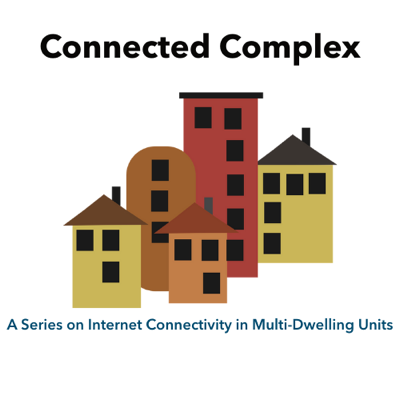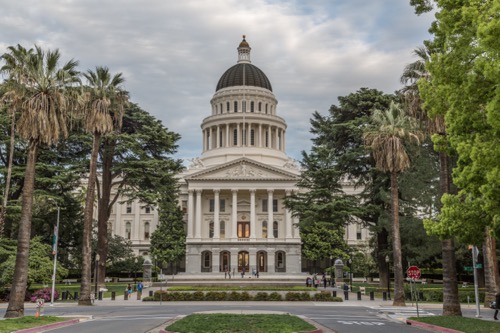
*This is the second installment of an ongoing series we are calling Connected Complex looks at how states and local communities are working to address the often complex challenges involved in bringing high-speed Internet access to multi-dwelling units.
California lawmakers approved new legislation letting renters opt out of bulk-billing arrangements that force them to pay for Internet service from a specific provider. Lawmakers say they didn’t ban the practice for fear of undermining some of the more beneficial aspects of bulk billing, which can make deployments more financially tenable for smaller providers.
Starting January 1, AB1414 requires that landlords “allow the tenant to opt out of paying for any subscription from a third-party Internet service provider, such as through a bulk-billing arrangement, to provide service for wired Internet, cellular, or satellite service that is offered in connection with the tenancy."

The new law states that if landlords prevent tenants from opting out of such arrangements, tenants "may deduct the cost of the subscription to the third-party Internet service provider from the rent." Landlords are also prohibited from any sort of retaliation.
AB1414 passed the California state Senate in a 30–7 vote a month ago, and was signed into law by California Governor Gavin Newsom last week.
Such bulk billing arrangements can be problematic if abused by regional monopolies to trap customers into uncompetitive arrangements resulting in high prices and substandard services. But in some areas, such deals can often be the only way a municipality, cooperative, or small provider can make deployment to unserved regions financially tenable.
Still, regional telecom monopolies have a long history in the state of California of abusing such restrictions to even further erode already muted competitive choice.
California Assemblymember Rhodesia Ransom told Ars Technica that large California providers like AT&T, Comcast, and Charter were “working really hard” to defeat the legislation, but correctly predicted that Newsom would sign the bill into law all the same.
Ransom says her office has had to try and deflate claims by regional monopolies that this is a blanket ban on bulk billing or an effort to limit how much money landlords can make.
“This is kind of like a first step in trying to give this industry an opportunity to just treat people fairly,” Ransom said. “It's not super restrictive. We are not banning bulk billing. We're not even limiting how much money the people can make. What we're saying here with this bill is that if a tenant wants to opt out of the arrangement, they should be allowed to opt out.”
Bulk billing could theoretically reduce prices for tenants if discounts negotiated between landlords and broadband providers were passed on directly to renters, but that rarely happens, Ransom said.

More often than not, landlords pocket the difference, according to thousands of complaints fielded by California state regulators.
As a result, Ransom argues that giving a landlord the option to opt out is the least the state can do without harming some of the beneficial aspects of such arrangements.
"We could have put a cap on the amount that you're able to charge,” she said. “There's so many other things that we could have done that would've been a lot less business-friendly. But the goal was not to harm business, the goal was to help people."
Landlord, Monopoly Shenanigans Have Long Plagued Consumer Choice
A 2016 Wired story by Susan Crawford outlines the myriad ways that regional monopolies and landlords create block-by-block de facto monopolies over access to an essential service. Monopolies that, more often than not, have the biggest harmful impact on low-income, minority, and other marginalized communities.
Federal crackdowns on such restrictions have been inconsistent at best.

In 2006, the FCC imposed rules attempting to ban such problematic partnerships, but they were so full of loopholes as to be useless. After decades of complaints, the FCC finally tried to update the rules in 2022, but ample loopholes and nonexistent federal enforcement resulted in little substantive reform.
In 2024 the FCC again tried to revisit the problem with a fixation on bulk billing arrangements the agency said would “boost competition and consumer choice and build on our ongoing efforts to improve broadband transparency.” But Trump FCC boss Brendan Carr was quick to dismantle the effort at the start of the year.
Technically, bulk billing contracts are only banned by the FCC when the arrangement provides an ISP exclusive, anti-competitive access to the building. But FCC enforcement has been largely nonexistent, and the Trump administration and Trump-stocked courts have steadily eroded the FCC’s ability to hold large telecoms accountable for bad behavior of any kind.
That leaves the onus for consumer protection on individual states with their own patchy histories of consumer protection. California’s lawmakers hope that at least allowing tenants to opt out of such arrangements provides a little balance to the equation.
Header image of rental agreement paperwork courtesy of Swiftlane, CC BY-NC 4.0, Attribution-NonCommercial 4.0 International
Inline image of California State Capitol building in Sacramento courtesy of Wikimedia Commons, CC BY-SA 2.0, Attribution-ShareAlike 2.0 Generic
Inline image of No Lobbying sign courtesy of Wikimedia Commons, CC BY 2.0, Attribution 2.0 Generic







